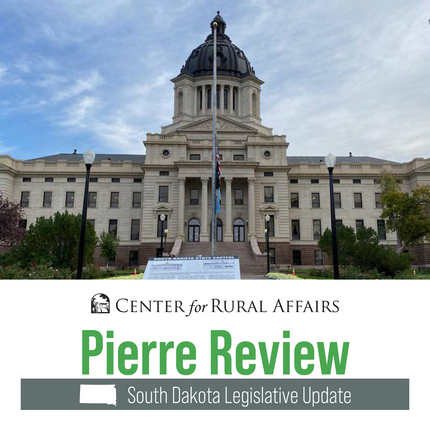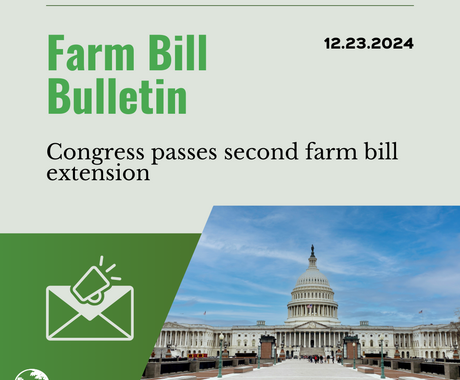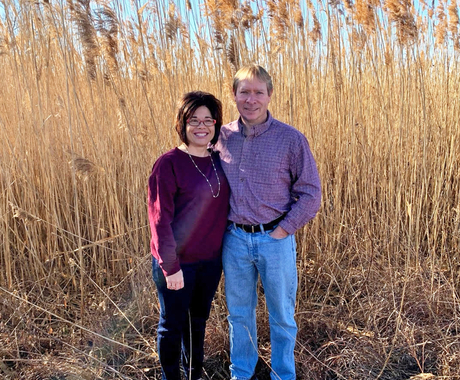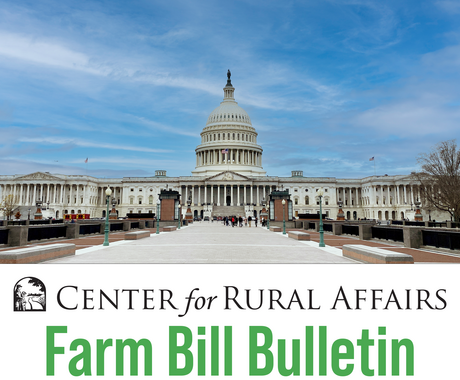Today is Day 10 of South Dakota’s 38-day legislative session, which will conclude March 25. The session got off to a quick start this year with bills coming up for hearings on Legislative Day 3. All bills need to be introduced by Feb. 1 (Legislative Day 16) and must pass out of both houses by March 4 (Legislative Day 34).
We welcome your input. Feel free to be in touch about these or any other bills you feel are important to rural communities. I can be reached at [email protected], or 605.240.0039.
Let your voice be known
It is critical that legislators hear from the people they represent. We encourage you to get involved in the legislative process by communicating with elected officials about the issues you care about. If you don’t know who your legislators are, you can find them at this link.
Most testifying is done in person. Currently, it is up to each committee to decide whether or not to allow remote testimony. To find out if you can remotely testify on a bill directly, contact the committee that has been assigned to the bill. Email addresses can be found here by clicking on the specific committee.
Below are the bills we are monitoring so far.
Energy and environment
House Bill (HB) 1052 - Monitor: This bill, brought at the request of the Public Utilities Commission (PUC), would increase the minimum fee required with an application for the construction of an energy conversion and transmission facility, including wind, solar, transmission, and carbon pipelines.
HB 1052 was heard in the House State Affairs committee on Jan. 12. The PUC testified that energy dockets, such as the Summit Carbon Pipeline siting docket, can be very costly for the commission to administer. Once docket administration costs exceed the fee paid by the energy company, the PUC must collect the rest from ratepayers. The South Dakota Electric Utilities Companies opposed the bill, arguing there should be a cap on the application cost. Ultimately the bill was tabled after the PUC and the South Dakota Electric Utilities Companies agreed to work together on a compromise and bring a new bill in the current session.
HB 1034 - Support: This bill, brought at the request of the PUC, would require hydrogen pipelines to be permitted by the PUC. Currently, the state does not have a statute governing hydrogen pipelines. This bill would bring permitting authority under the PUC, similar to oil and carbon pipelines.
HB 1034 was heard in the House Commerce and Energy Committee on Jan. 12. It was noted by the PUC that the newly created Heartland Hydrogen Hub, a project of the U.S. Department of Energy, includes the state of South Dakota. The PUC stated that while there are no current hydrogen pipeline applications, this is an emerging field and the state needs to have a system in place to govern the permitting process. The bill passed the committee 13-0. It passed the House floor 66-3 on Jan. 16 and has now been referred to the Senate Commerce and Energy Committee.
Economic and community development
HB 1001 - Support: This bill, introduced by Rep. Chris Karr, would repeal the expiration of the reduced state food tax. In 2023, the Legislature passed a measure to reduce the rate from 4.5% to 4.2%. This measure was set to expire in 2027. HB 1001 would remove the 2027 sunset on the tax reduction and make the cut permanent.
HB 1001 was heard in the House Taxation Committee on Jan. 11. and passed out of committee 11-1. It passed the House floor on Jan. 12 on a 54-12 vote. On Jan. 18, the bill was heard in the Senate Committee on Appropriations and was tabled on a vote of 7-2.
HB 1041 - Support: This bill, brought by Rep. Tyler Tordsen, modifies the definition of public infrastructure to allow a federally recognized Indian Tribe to be eligible for housing infrastructure grants and loans. HB 1041 is a follow-up bill related to the passage of a 2023 bill that appropriated $200 million in state and American Rescue Plan Act funds, toward housing infrastructure loans and grants, with 70% of funds going to towns with populations under 50,000. According to the bill sponsor, during the rule-making process a definition was included that unintentionally made tribes ineligible for the program. This bill would ensure Tribes were included.
HB 1041 was heard in the House State Affairs committee on Jan. 12 and passed 12-1. It passed the House floor 52-17 on Jan. 16. It is scheduled for a hearing in the Senate Commerce and Energy Committee on Jan. 23.
Upcoming legislative forums
District 20 Legislative Coffee, Jan. 26, hosted by the Mitchell Area Chamber of Commerce
Aberdeen Area Cracker Barrels, Jan. 27, Feb. 10, and Feb. 27, hosted by the Aberdeen Area Chamber of Commerce
Rapid City Area Cracker Barrels, Jan. 27, Feb. 17, and March 2, hosted by Elevate Rapid City
District 17 Legislative Coffee, Feb. 10, hosted by the Vermillion Area Chamber & Development Company and Governmental Affairs Committee





